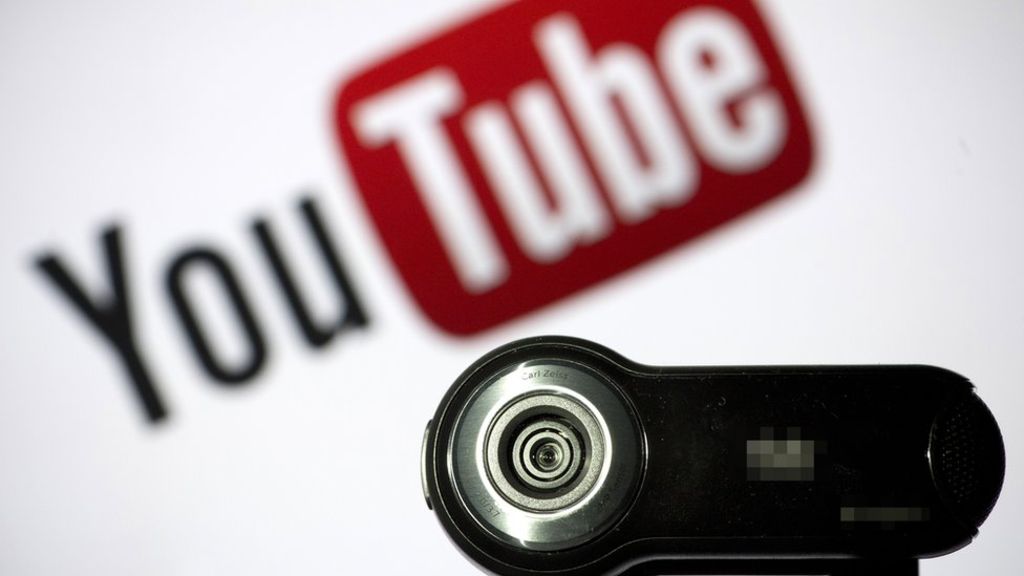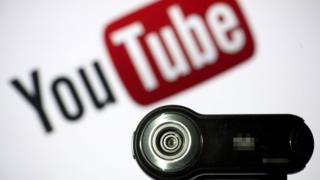NSPCC warns YouTubers over fan relationships – BBC News

 Image copyright Getty Images
Image copyright Getty Images “Blurred boundaries” between prominent YouTube stars and their viewers can put young people at risk, a leading children’s charity has warned.
Emily Cherry, of the NSPCC, said YouTubers had a “responsibility” to make sure relationships with young fans were appropriate.
Claims of inappropriate behaviour have been made against a small number of internet personalities.
Google-owned YouTube told the BBC that educating fans and creators was key.
Ms Cherry warned that online stars have huge power and influence on young people and the way they think about the real world.
“One child told me that checking their social media accounts and what their favourite YouTube stars are up to was as important to them as eating,” she told BBC Radio 5 live.
‘Sexual activity’
In 2014, Ania Magliano-Wright published a video in which she alleged a YouTube video-maker known as VeeOneEye – real name Jason – had sex with her when she was 15.
She said she had offered Jason a place to stay after a fan and creator meet-up in London.
“He bought a big bottle of alcohol,” she said.
“I wasn’t really aware of how much alcohol it would take for me to lose control over myself.
“I didn’t want to seem uncool or boring and I wanted to seem normal it didn’t ring as many alarm bells as it should have.”
Ania says she did go to the police with her allegations but decided not to press charges.
Jason declined to be interviewed by the BBC but said: “I like the topic for your piece and it is something that does need to be talked about.”
He also published an online apology to Ania blaming his strict religious upbringing for his actions.
‘Video apology’
In the video, which was uploaded in 2014, Jason says: “I thought it’d be fun to get some drinks because we didn’t have much in common and it was awkward.
“At that moment, that was the only way I knew how to socialise – by drinking.
“She never approached me as a fan. To me we were just two YouTubers who wanted to hang out.
“It seems she thought my intentions were to become friends and then have sex. It wasn’t.
“Most people make mistakes when they’re growing up with sex and alcohol.”
“This was me making mistakes and growing up, but at the wrong age.
“I want to say sorry to Ania and anyone else that I’ve hurt and anybody that’s affected by this. I’m sorry.”
NSPCC advice for staying safe on YouTube
- Never share your personal information online
- Do not accept friend requests from people you don’t know in real life
- Have conversations with your parents about where you are going and what you are doing online
‘Manipulative relationships’
In total, 14 separate allegations were made against vlogger Alex Day, but he was never charged. At the height of his fame, Alex had more than one million subscribers to his channel.
Alex told the BBC he had not realised that making videos in his bedroom could put him in a position of power.
“Something I never considered was that, in meeting someone offline, they’d got to know me a long time before I got to know them,” he said.
“It wasn’t an equal situation because they had an idea of me that I wasn’t considering – and that was totally my fault.
‘Manipulative relationships’
“These people didn’t feel like fans. I never felt like I was taking advantage of people at the time – but if people say I did then I did.”
Alex denied any sexual contact with underage girls but said he had “manipulative relationships with women”.
He also told the BBC he was surprised more allegations had not surfaced against other content creators.
“There are certain people in the YouTube community that are highly regarded and I’m like ‘how did he get away with it?'”
He went on to say those he had in mind may not have done “monstrous things”, but sometimes people would “hook up” at various conventions.
Awareness
Hannah Witton, who has made videos about sexual health and body positivity, said the YouTube community was “hyper aware” of allegations.
She admitted on some occasions people had known about allegations of inappropriate behaviour for a long time before they were made public.
“We strive to support people affected by it and educate ourselves as well,” she told the BBC.
“There has been a shift in the last few years, since these allegations started, to educate ourselves on appropriate boundaries. You have to judge where the line is between different people.”
She said YouTubers had responded to allegations by “cutting people off” from the community when they were implicated.
Education
YouTube said content creators were responsible for their own “content and conduct” on the platform.
“As a company we have very clear community guides which set out the rules of the road on YouTube,” said the website’s spokeswoman Thea O’Hear.
“It’s really important that creators are aware of the responsibilities that come with having a big audience and a global fan base.
Ms O’Hear said educating fans and creators was “best delivered” through a mixture of YouTube’s company values, support, and physical literature.
“We also try to provide practical support and guidance to creators to help them create the right kind of content and have the right kind of interaction with their fans.
“It’s also around parents being involved, and schools, and everybody having a really good understanding of what it is to be a young person in the 21st Century.
“We at YouTube are also growing with the community. Often we create tools in response to community feedback.
“YouTube would terminate the channel of someone who has broken our guidelines.”
If you have been affected by any issues in this article or need advice on staying safe online, on protecting your children, or as an Internet personality, the NSPCC has a helpline you can call on 0808 800 500 2.
Hear the full interviews featured in this report on the Stephen Nolan programme, Sunday 9 October, 22:00 BST on BBC Radio 5 live.